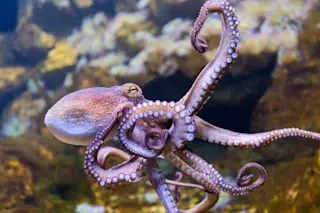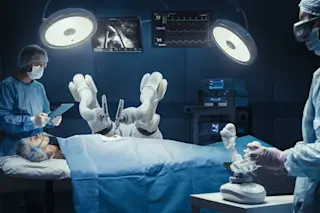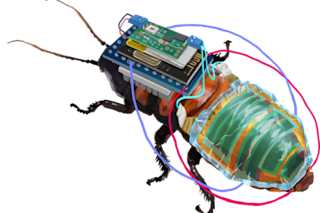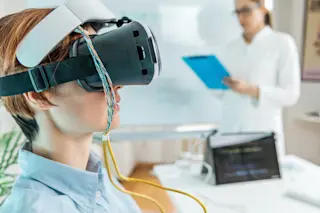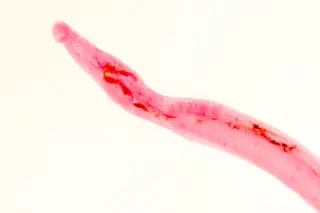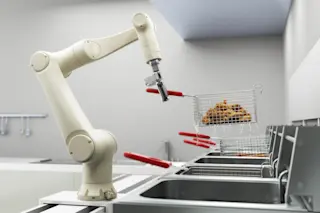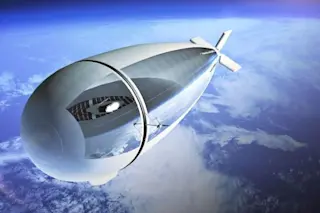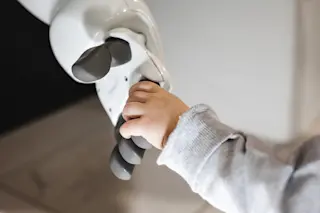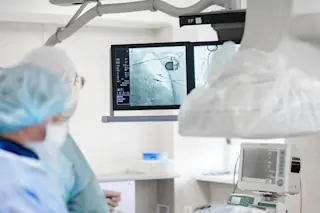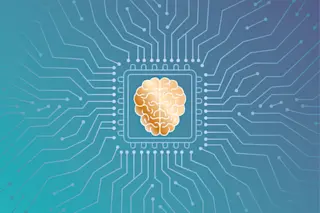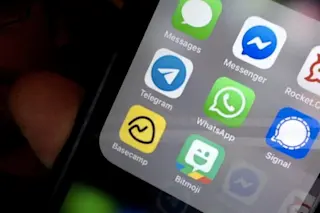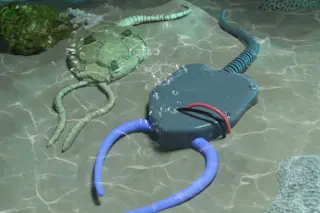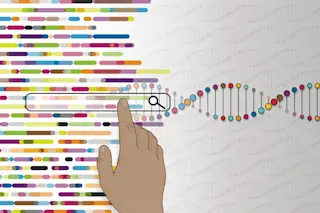If you’ve ever held a fish, you know that people are terrible at grabbing wet, slippery surfaces. In fact, some scientists think that our fingers get pruney just to manipulate objects underwater.
In a new study, researchers invented a glove that mimics octopus suckers to improve our grip. The device’s suction activates automatically and can pick up objects of all shapes and sizes. It could help rescue divers grab victims, archaeologists retrieve artifacts and engineers improve underwater construction.
“It makes handling wet or underwater objects much easier and more natural,” says co-author Michael Bartlett of Virginia Tech in a press release.
The “Octa-glove” grips and releases on demand and produces adhesive pressures upwards of 60 kPa. It switches on and off within 50 milliseconds, making it faster and more adaptable than other manually controlled adhesive devices.
“The glove does the work to grasp. It can all be done without the ...


